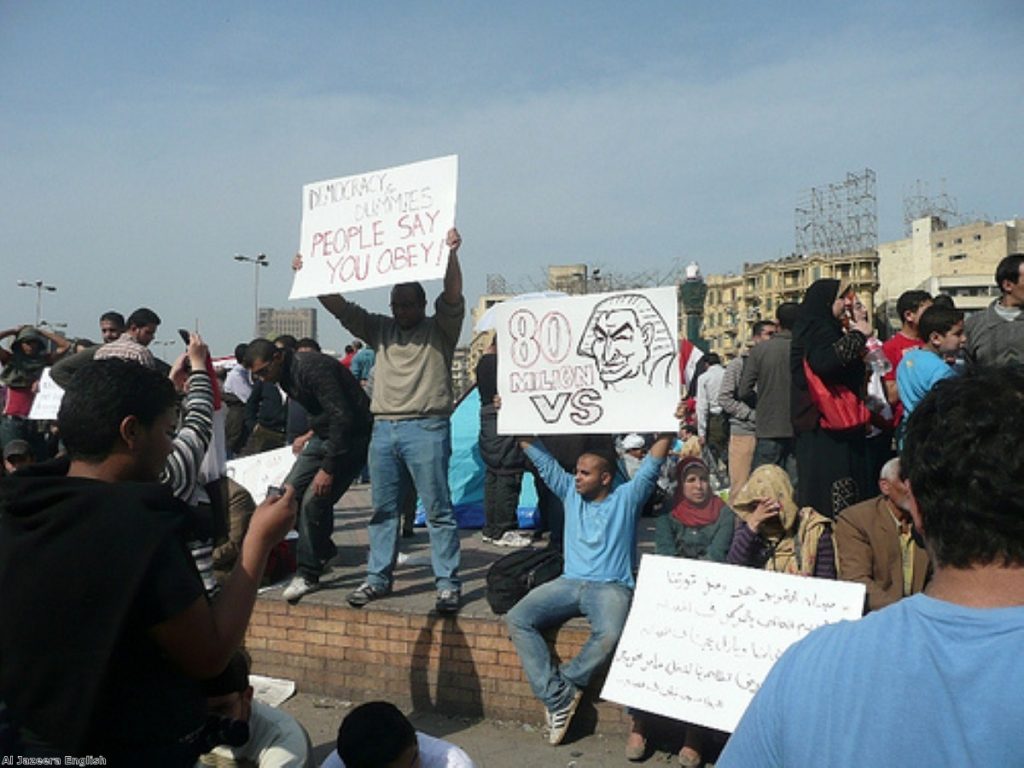We failed north Africa, Clegg tells Europe
Nick Clegg has called on Europe to make a “full and engaging offer” to north Africa to help promote democracy in the region.
The deputy prime minister, giving a speech in Brussels, said European states had allowed autocratic regimes to “get away with making a pretence of reforming”.
“We have failed because our support for North African countries has not been based strongly enough on the values of open societies,” he said.


“We have supported the important goals of economic opening and reform, but the EU has done nothing like enough to use its weight to encourage open, plural societies more broadly.”
The Liberal Democrat leader urged EU states to come together to form a new response to the pro-democracy protests seen across north Africa and the Middle East, which have already toppled authoritarian regimes in Tunisia and Egypt.
His remarks are likely to be met with hostility from Conservative eurosceptics, however, as he piles pressure on the EU to rethink its foreign policy motives.
“Everyday on our television screens, we are witnessing the courage of ordinary people taking to the streets to demand greater freedom,” Mr Clegg said.
“The countries of the European Union need to match their bravery and get behind this movement for change. They are creating a new world. We need a new response.”
Mr Clegg and David Cameron have both admitted that it remains unclear whether recent events in the region will result in a democratic awakening or more “risk and difficulty”, as the prime minister put it yesterday.
“What happens in North Africa impacts on every community in Europe. This is happening in our back yard,” Mr Clegg added.
“The EU, individual member states, businesses, and civil society – all of us need to step up to the plate. 2011 is certain to be a defining moment for north Africa. But it is a defining moment for Europe, too. I hope together we can rise to the challenge.”
Mr Clegg’s rhetoric refused to acknowledge that democracy was a ‘western’ value, referring to the democratic Baghdad of Haroun al-Rashid while much of Europe was still in the Dark Ages.
“As we radically re-shape our approach to North Africa, the EU has to develop a strong, enticing offer that lies between warm words and blank cheques at one extreme and full EU membership at the other,” he added.
“This is not about imposing Western democratic models and prescribing outcomes, but about supporting those in the region who want a more open society.
“We know that reform must be a home-grown process and leadership must come from within countries.
“Yet the international community, especially the EU, can act as a powerful support and inspiration to those countries who want open, plural societies.”
Uncertainty over the eventual outcome of the present instability has been underlined by events in Libya, where forces loyal to renegade Libyan leader Muammar Gaddafi have begun advancing on rebel territory.
That follows Libya’s expulsion from the UN human rights council yesterday, a move welcomed by foreign secretary William Hague.
“This outcome, which the UK has pressed for with partners, demonstrates the unity of the international community and its commitment to hold the Libyan regime accountable,” Mr Hague said.
“Libya’s suspension from the council is unprecedented. But it is absolutely right that a regime that has failed so shamefully in its responsibility to its people and that has been referred to the prosecutor of the international criminal court should not be allowed to continue to enjoy the rights of membership.”
Any further military action taken against civilians by Col Gaddafi would accelerate pressure on international actors like Britain to take action to stop the violence.
Mr Cameron said yesterday that intervention was being considered on all levels, including military action.












